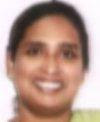PANJIM: An Air Force officer, who was to face rigorous imprisonment of one year after by General court martial, has challenged the order of General court martial and also promulgation of the sentence of the court martial in the High Court of Bombay at Goa.
Major Deepak Bali, Chief Engineer with the Indian Air Force, by the order of the court martial was directed to be cashiered and also to suffer rigorous imprisonment for one year. However, Bali contended that the convening of the General court martial is untenable, illegal and without jurisdiction.
Bali was charged with obtaining for himself Rs. 10,000 as gratification for having passed payments of two running accounts in favour of M/s Puspha Engineering Works. The petitioner was also charged for abusing his position as Garrison Engineer and taking a sum of Rs. 2,500 from a contractor with the Military Engineer Services.
Accordingly petitioner was charged under Sec. 69 of the Army Act for obtaining gratification contrary to sec. 7 of The Prevention of Corruption Act so also obtaining pecuniary advantage contrary to sec. 13(2) of The Prevention of Corruption Act.
Further the petitioner submitted that the entire proceeding suffers from error of jurisdiction as the finding of the sentence awarded by General court martial is also null and void.
The counsel for Union of India, Assistant Solicitor General of India, Carlos Ferreira submitted that under section 153 of the Army Act, read with rule 71 of Army rules, the sentence is not confirmed until promulgation is effected and therefore the petition is premature.
Ferreira further contended that under section 164 (2) of the Army Act the petitioner has an alternative remedy for filing petition before a Central Government against the sentence of Court Martial. Therefore, the petitioner could very well approach the Central Government before approaching the High Court in a writ petition.
The Division bench then wanted to know from the counsel for the petitioner, why they have directly approached the High Court without approaching to the Central government, to which the counsel submitted that there are judgments which enables the petitioner to approach the High Court directly and sought two weeks time for the same.
The matter is now fixed for hearing after vacation for hearing on the preliminary objections raised by Union of India.
Subscribe to:
Post Comments (Atom)







No comments:
Post a Comment